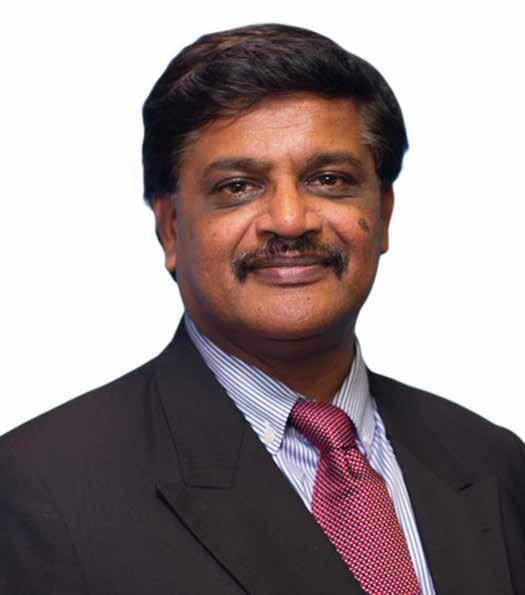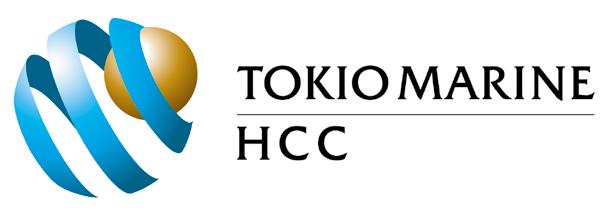
10 minute read
Interview Bert Zandvliet – What else is new?
brokers, as sometimes risks are presented to the market that in the past would not have been considered. Where in the past certain ‘bad’ or ‘unattractive’ deals would perhaps not reach the market because brokers would advise their clients against it, nowadays due to the very large number of participants, the quality of offers to the market is under pressure.” Bert is pleased to see that as a result the industry sets higher requirements in order to select between ‘good’ and ‘bad’ risks, resulting in increasing percentages of declined cases by the market.
Advertisement
According to Bert increased competition has also triggered a rise in non-traditional and more complex products. “The increased competition, not just in the London market, and the logical necessity of insurers to maintain market positions or even increase market shares, has triggered a high level of ‘creativity’ and innovative drive.” But Bert underlines that not all ideas are really new. “Sometimes we see new approaches to basically not new business structures, while ‘old dogmas’ do not remain undiscussed or undisputed. Products such as single risk cover, non-trade related cover, top-up cover and non-cancellable credit limits, all types of leasing- and factoring-structures, reversed or not, are examples that now play a more important role in the business than before.” Bert recognises they need to be investigated due to the competitive pressure in the market. “This requires quite some effort and analysis by insurers as well as reinsurers as they are not only offered as a general product, but also on individual requests with particular ins and outs. We see submissions of this nature quite regularly. Clearly, as a reinsurer we want to support our clients where we can and are
Bert Zandvliet
Bert Zandvliet, born The Hague 1962, married, three children. Studied Master of Business Law/ Leiden University 1986 and Master of Business Administration/ Newport University Utrecht 1990. He started his career in primary trade credit insurance (product development and technical assistance and trainings for starting export credit insurers in developing countries) and since 1999 at Munich Re on the reinsurance side.
Bert Zandvliet, Senior Risk Underwriter MunichRe
glad to have an open and in-depth discussion on the pros and cons of new and often complex products.”
The future of the industry Overall, Bert sees a strong need to embrace innovation and the development of new products and processes in order to survive as an industry. At the same time he emphasizes that existing guidelines and criteria should not be abandoned without caution. “The development of new products and innovation in general is essential to survive and preferably grow in the present times. Without innovation one is likely to lag behind rather sooner than later. On the other hand, it is important that the drive for new products, procedures and techniques is combined with an interest in and a profound knowledge of the background and experience on why criteria and
guidelines were formulated in the past in a particular way.” Bert welcomes ongoing discussions about the existing guidelines and criteria and agrees that they can certainly be disputed and maybe even adapted, but never be put aside too easily. “One would expect participants in the market are able to combine entrepreneurship and innovation with a certain level of discipline and conservatism in risk underwriting –be it a complex combination - to have the best chances in the longer run to be successful. When one is aware why certain products, processes or approaches were not offered before or what caused losses in the past, one is more likely to avoid falling in the loopholes certain business structures bring about.” While Bert argues that old ideas have a habit to return over time, he also notes that the future encompasses some fundamental challenges that need to be addressed by the industry in the coming years. “Having seen different cycles or several swings in the development of the trade credit insurance industry, it is interesting to see how certain tendencies return over time. Not always to be translated on a one-to-one basis, but general ideas may come back, even if they are formulated in a different manner. There are however also entirely new developments that have to be taken into account. For instance, developments in IT, the exceptional growth of on-line business and the growing databases on past and anticipated future (payment) behavior are instruments that may open new doors to our industry like never before. Finding the proper balance between these new tools and possibilities, the continuing internationalization and transparency of the market and the ‘rules of the game’ formulated for our industry – not always without good grounds - is likely one of the more important challenges for the coming years”.
When asked about the industry’s future developments Bert notes: “This is of course very difficult to comment on, especially in the longer term. One would expect that somehow the growing capacities in markets and also the increasing numbers of market participants will regulate itself. Nonetheless, in general this kind of ‘regulation’ goes hand in hand with high loss ratios for at least some of the parties involved. On the other hand, participants come and go and sometimes also opportunism plays a role.”
ICISA Although Bert has more than 30 years of experience in the trade credit insurance industry, it is only since 2010 that Bert has been involved with ICISA and in the Credit Insurance Committee. Bert emphasises an important role for ICISA as a platform to discuss new developments. “In the meetings of the Credit Insurance Committee all of the above mentioned developments are regularly discussed, showing that the consequence of the increased compe-
Endorsed Conferences
tition, combined with more restricted possibilities to vary in other elements, like pricing, is a continuous point of attention for most players in the market.”
He further notes that “more and more members of the Committees are active in the same markets and are not only colleagues, but also competitors. To a certain extent this may have limited the ‘freedom’ to speak openly, but the technical character of the matters that are brought to the table in the Committee meetings somehow levels this out. Members are happy to exchange views and listen to the considerations of others, despite the relations in the market environment.” Regarding the position of reinsurers in ICISA, Bert likes to consider this role to be informative and distinctive. “The role of the reinsurance members in the Committees, who usually have a view over many markets, is according to me also useful in this respect.”
MunichRe
Munich Re stands for solution-based expertise, consistent risk management, financial stability and client proximity. This is how Munich Re creates value for clients, shareholders and staff. In the financial year 2016, the Group – which combines primary insurance and reinsurance under one roof – achieved a profit of €2.6bn. It operates in all lines of insurance, with over 43,000 employees throughout the world. With premium income of around €28bn from reinsurance alone, it is one of the world’s leading reinsurers.
To find out more about MunichRe, please visit www.munichre.com ICISA endorses numerous conferences related to the trade credit insurance, surety and political risk industries:
Asia Pacific Insurance Summit 2017 (16-17 November 2017, Hong Kong)
GTR Nordic Region Trade & Export Finance Conference 2017 (16 November 2017, Stockholm)
TXF Private Insurance 2017 (28 November 2017, London)
ExCred New York: Insuring Structured Trade, Export & Project Conference (17 October 2017, New York)
Supply Chain Finance Summit 2018 (31 January - 1 February 2018, Frankfurt)
More information on our endorsed conferences can be found on the ICISA website.
Join over 3600 other industry experts in the ICISA group on LinkedIn

“So what?” was the first reaction Paul Daas, Manager Operations at Nationale Borg, gave when invited to talk about his impressive forty year long career in the industry and with Nationale Borg. Paul is the perfect expert to learn more about the remarkable developments within the surety sector, Nationale Borg and in ICISA. So we are very pleased he shares his insights with us.
He started his career at the early age of 19, after he had finished school and having worked for the Dutch Customs Authorities for about a year. “I joined the reinsurance team, working in the inwards underwriting team. After 9 years I made a switch to become an underwriter in the direct Surety team, which did not last very long, because I was asked to head up the reinsurance team in 1988, after some people left to start their own company. From that date all the reinsurance matters were handled in my team, inwards and outwards, underwriting and technical accounting.” In 2008, about a year after the company was acquired by private equity investors, he
moved back to the direct underwriting for about two years, leading the reorganization of the commercial teams and guiding them through the crisis. “Late 2010 I was appointed Manager Operations, largely involved in Solvency II matters, the new IT system for the direct underwriting, and various other technical and reporting tasks.”
Industry and product development Looking at the industry, Paul identifies a consolidation trend in the market. “Focusing on the European market we noticed that a lot of the specialized players in the local markets became integrated in larger international operating groups and very few really independent companies remained. In the early nineties the large trade credit insurance groups were formed, afterwards also investing in smaller local players. Generally results were okay, with a few hick-ups during crisis years.” He indicates that the largest problem he was faced with was the financial guarantee crisis in Scandinavia. “It led to bankruptcies and personal dramas in the market. It did however create the need for cooperation between reinsurers - which was very successful - and a ban on financial guarantees, from which we are still benefitting.”
He indicates further that looking at Nationale Borg’s home markets, being the Netherlands and Belgium, the banks have had and still have a dominant position, despite the Basel capital requirements. “Most banks produce surety bonds or usually guarantees as a niche product, with slow processes. In addition the credit lines are generally heavily collateralized, so clients are very open to the market for alternatives, which we can provide. That has not changed over the years. The industry itself has not really changed its position towards the clients either, but there are more players around, so a larger choice for the market. This does not help in the pricing of course.”
Looking at developments regarding the product, Paul notes that the product as such has not really changed. “In most markets the majority of the business is still contract and customs/trade bonds. Nationale Borg has developed some smaller special niche products over the years, which have become a solid income base as well.”








